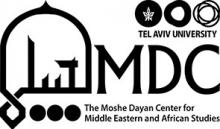"The rapprochement between both countries grabbed headlines around the world, but despite the hype, it would be premature to characterise it as a breakthrough. It remains to be seen whether the agreement delivers on more than a re-opening of the two countries’ respective embassies in Tehran and Riyadh, but it is potentially significant for three reasons: First, it may herald compromises in the political deadlocks that exist in Lebanon and Yemen, where both Iran and Saudi Arabia have been deeply involved. Greater political stability in Lebanon and Yemen might facilitate economic development in the Eastern Mediterranean and Red Sea sub-regions, both of which have been the focus of much greater regional investment since 2020. Second, it symbolises a new diplomatic role for China in the region and the Gulf, supplanting Russia as the great power alternative to the United States in the region. Third, it raises questions about Saudi Arabia’s confidence in the US’ (and, to a lesser extent, Israel’s) ability to contain and deter Iran’s nuclear development, and protect the Kingdom from what it perceives as Iranian encirclement."
"What changed over the past year that may have contributed to last week’s deal? First, the Houthi offensive in Maʿrib and Shabwa became bogged down, and lost momentum between the end of 2021 and March 2022. Second, Russia’s invasion of Ukraine exacerbated the humanitarian and economic crises in both Lebanon and Yemen. Third, the United Nations succeeded in negotiating a ceasefire between the Houthis and the Yemeni government in April 2022, opening the port of Hudaydah to fuel and food imports to Houthi-controlled areas, a long-standing Houthi demand. The ceasefire was extended twice in 2022, and though it has now expired, the two sides are still enforcing it in practice. Fourth, Hezbollah and its political allies in Lebanon lost their parliamentary majority in the May 2022 elections — the number of seats they controlled dropped from 71 (of 128) in 2018, to 62 in 2022. These circumstances may have set the stage for a renewed effort to find a Saudi-Iranian diplomatic compromise that could help break the political deadlocks in Beirut and Sana’a."
Saudi-Iranian Deal is Potentially Significant, But Can’t be Deemed a Breakthrough — Yet
Brandon Friedman has published an article for the National University of Singapore's Middle East Institute Perspectives series on the recent re-establishment of diplomatic ties between Saudi Arabia and Iran.
External reference








